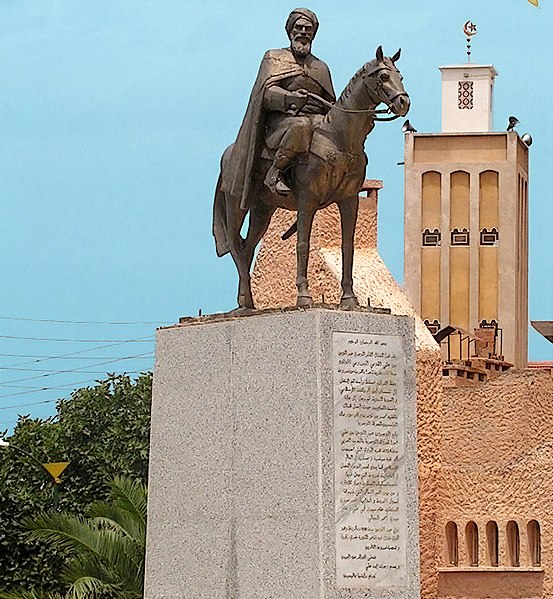Much of the history of Algeria has taken place on the fertile coastal plain of North Africa, which is often called the Maghreb. North Africa served as a transit region for people moving towards Europe or the Middle East, thus, the region's inhabitants have been influenced by populations from other areas, including the Carthaginians, Romans, and Vandals. The region was conquered by the Muslims in the early 8th century AD, but broke off from the Umayyad Caliphate after the Berber Revolt of 740. During the Ottoman period, Algeria became an important state in the Mediterranean sea which led to many naval conflicts. The last significant events in the country's recent history have been the Algerian War and Algerian Civil War.
Roman inscription from Agueneb in the Laghouat Province
The mausoleum of king Juba II and Cleopatra Selene II in Tipaza
Lands controlled by the Maghrawa in the first half of the 11th century
Statue of Abd al Mumin in Tlemcen, Algeria
Muslim conquest of the Maghreb
The Muslim conquest of the Maghreb or Arab conquest of the Maghreb by the Rashidun and Umayyad Caliphates commenced in 647 and concluded in 709, when the Byzantine Empire lost its last remaining strongholds to Caliph Al-Walid I. The North African campaigns were part of the century of rapid early Muslim conquests.
Roman Theatre at Leptis Magna
The Arab conqueror and general Uqba Ibn Nafi founded the Great Mosque of Kairouan (also known as the Mosque of Uqba)—the oldest and most important mosque in North Africa,—in Kairouan, Tunisia, 670 AD.
Prayer hall of the main mosque of Kairouan, with columns taken from former churches – arguably from Carthage.







